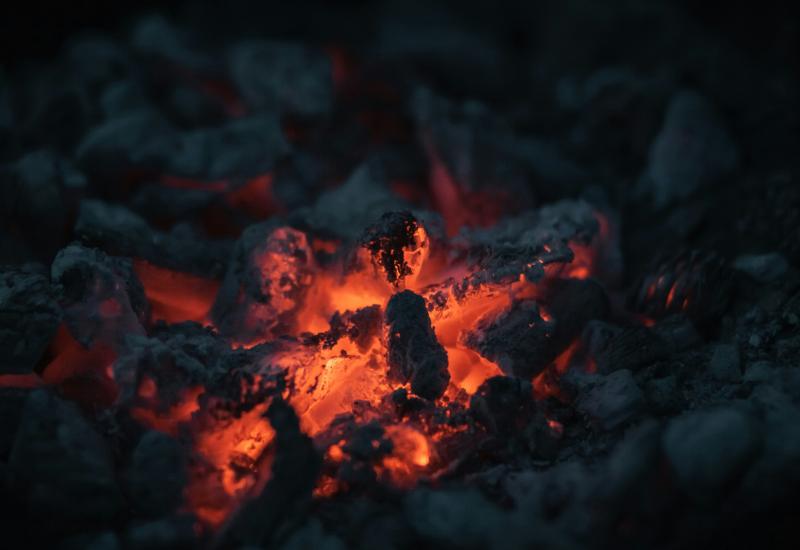
ASH 2025 preview – another degrader fight
Rival BTK degraders face off, as do bispecific Cars and T-cell engagers.
Rival BTK degraders face off, as do bispecific Cars and T-cell engagers.

BeOne and Nurix are set to do battle again at the American Society of Hematology meeting, where their respective BTK degraders will face off in adjacent presentations at the same oral session on 6 December. The molecules, BGB-16673 and bexobrutideg respectively, have previously put up near-identical datasets, so investors will be keen to pick out any distinguishing features.
Other presentations involving chronic lymphoblastic leukaemia include Newave’s covalent and non-covalent BTK inhibitor rocbrutinib, as well as Lilly’s Jaypirca, which is being highlighted in a press briefing. Meanwhile, in B-cell lymphomas several bispecific Car-T therapies will do battle, as will rival anti-CD20 T-cell engagers from Genmab/AbbVie and Regeneron.
The genie is already out of the bottle for Genmab/AbbVie’s drug, Epkinly, after its recent US approval for the indication in question, second-line follicular lymphoma. The trial backing this, Epcore FL-1, is also to be highlighted at an ASH press briefing, but the data, including survival curves, are now out for all to see on Epkinly’s updated label.
For Regeneron’s troubled Ordspono the ASH data feature first-line DLBCL, and amount to what could eventually become the dataset that goes to regulators for full approval. The company earlier gave up on an accelerated path for this indication after a complete response letter, while in follicular lymphoma Ordspono has been hit with two CRLs.
BTK degradation and more
In CLL BeOne’s BTK degrader BGB-16673 is now ahead of Nurix’s rival bexobrutideg, having now started three pivotal trials. In terms of clinical data, however, the last time the two clashed a year ago they were neck and neck, though Nurix has argued that it might have a slight edge on safety.
Lilly’s non-covalent inhibitor Jaypirca is awaiting an imminent FDA decision on full approval in relapsed CLL, where its confirmatory Bruin CLL-321 trial failed show an overall survival benefit. At ASH the front line takes centre stage, where Bruin CLL-314 has shown Jaypirca to be numerically better than the covalent drug Imbruvica. However, the BTK inhibitor to beat here is BeOne’s Brukinsa, which bested Imbruvica on PFS in the head-to-head Alpine trial.
Selected ASH presentations in CLL & B-cell lymphomas
| Project | Mechanism | Company | Trial | Setting | Abstract | Abstract summary |
|---|---|---|---|---|---|---|
| KITE-363 or KITE-753 | CD19 x CD20 Car-T | Gilead | NCT04989803 | R/r BCL | 265 | 18 Mar 2025 cutoff: ORR 71% (n=14) for KITE-753 |
| Lucar-G39D | CD19 x CD20 gamma-delta Car-T | Legend | NCT06395870 | R/r B-cell NHL | 266 | 29 Apr 2025 cutoff: ORR 70% (n=10) |
| Ronde-cel | CD19 x CD20 Car-T | Lyell | Pinacle | 2/3L LBCL | 668 | 27 Jun 2025 cutoff: ORR 87% (n=15) in 2L, 90% (n=31) in 3L+ |
| Epkinly | CD20 T-cell engager | AbbVie/ Genmab | Epcore FL-1 | Follicular lymphoma | 466 | Data already disclosed in new US label |
| Ordspono | CD20 T-cell engager | Regeneron | Olympia-3 | 1L DLBCL | 65 | 5 May 2025 cutoff: ORR 91% (n=22) |
| PMB-CT01 | BAFF-R Car-T | PeproMene | NCT05370430 | Post-CD19 BCL | 268 | CR rate 100% (n=7) |
| Jaypirca | Non-cov BTK inhibitor | Lilly | Bruin-CLL-314 | CLL, vs Imbruvica | 683 | 1L ORR 93% vs 86%; r/r ORR 84% vs 75% |
| BGB-16673 | BTK degrader | BeOne | Cadance-101 | R/r CLL | 85 | 23 May 2025 cutoff: ORR 86% (n=66) |
| Bexobrutideg | BTK degrader | Nurix | NCT05131022 | R/r CLL | 86 | 27 May 2025 cutoff: ORR 79% (n=84) |
| Rocbrutinib | Cov & non-cov BTK inhibitor | Newave Pharmaceutical | NCT06978088 | Post-BTKi CLL | 87 | 28 Mar 2025 cutoff: ORR 78% (n=40) |
Source: ASH.
In Car-T therapy bispecific constructs have seen growing interest, and ASH oral sessions include presentations on three projects against CD19 and CD20, from Gilead, Legend and Lyell.
The Gilead presentation is on a study that tests two separate projects, KITE-363 and KITE-753; these each comprise the same construct, but the former uses traditional manufacturing while the latter employs a three-day process. The data should indicate how Gilead squares up to fast-manufactured Cars from Novartis and AstraZeneca, and to suggest which project Gilead will take forward.
Lyell’s Pinacle study of the ImmPACT Bio-derived rondecabtagene autoleucel serves as a prelude to a pivotal trial, due to start next year comparing this project head to head against Gilead’s Yescarta or Bristol Myers Squibb’s Breyanzi in second-line B-cell lymphoma.
And Legend Biotech will present the first human data for LUCAR-G39D, a bispecific Car notable for using gamma-delta T cells. The precedent here isn’t great, with Adicet initially touting promising data for an anti-CD20 gamma-delta Car-T therapy coded ADI-001, but ultimately discontinuing this in oncology.
ASH 2025 takes place in Orlando, Florida on 6-9 December.
2811













